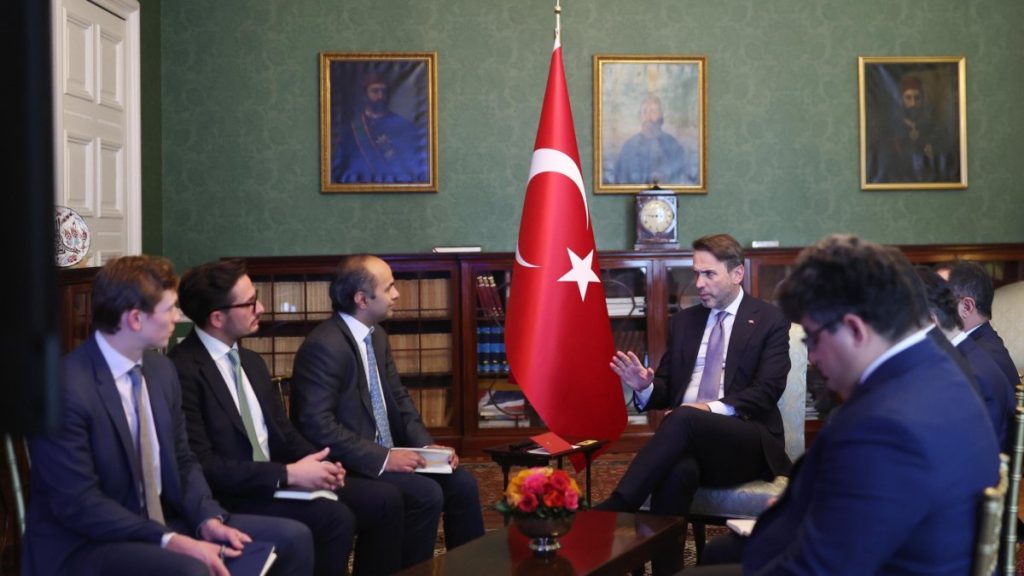The war in Ukraine that erupted in 2022 has sent shock waves through European gas markets. Energy prices have skyrocketed, global natural gas flows have been redirected, and policymakers across the continent have been forced to pivot dramatically toward energy security. In short, the Russia-Ukraine war has not only been a conflict between two nations but has also unleashed economic consequences that resonate far beyond the battlefield.
Today, Europe is on the brink of a renewed energy crisis, with gas reserves reducing and the supply cuts from Moscow looming. This turmoil is compounded by a staggering 45% surge in gas prices this year alone as tensions escalate. As households grapple with soaring energy bills, the continent is simultaneously facing a widespread cost-of-living crisis that stifles economic growth.
But the repercussions of these energy struggles aren’t confined to Europe. The International Monetary Fund (IMF), in its Global Financial Stability Report, has raised alarms over the potential fallout from geopolitical tensions in the Middle East and North Africa. The report warns that escalated conflicts in these regions could lead to a revaluation of risks in emerging markets, raising concerns over potential defaults in developing economies and pushing borrowing rates higher.
In this turbulent landscape, one question arises: Can Türkiye be part of the solution? Last week, Energy and Natural Resources Minister Alparslan Bayraktar held high-profile meetings in Germany and the U.K., signaling a proactive approach to addressing these challenges.
During discussions in Germany, Vice-Chancellor and Economy and Climate Minister Robert Habeck announced plans to bolster collaboration on renewable energy. Habeck highlighted Türkiye’s commitment to decarbonizing its industry and underscored the necessity of constructive dialogue amidst these challenging times.
Germany’s new reality is clear: Diversifying economic and trade relationships is a bitter lesson learned from the Russia-Ukraine conflict. Habeck’s praise for Türkiye as a formidable partner in trade and energy highlights the country’s geographical advantages and its untapped energy potential.
The second stop on Türkiye’s diplomatic tour was the U.K. Following the meeting, Bayraktar stated: “We continue to sign investments and agreements that will position our country as a central player in energy in a planned and determined manner. We signed a memorandum of understanding on ‘Energy and Climate Dialogue,’ covering important collaborations such as the transition to clean energy, a low-carbon hydrogen economy, grid modernization, regional interconnections, and small modular reactors, with Ed Miliband, secretary of state for energy security and net zero in the U.K. I hope this agreement, which marks another step toward energy supply security and independence, will be beneficial to both countries.”
Bayraktar also added that they plan to invest $108 billion in line with the Renewable Energy 2035 Road Map and in this sense, the United Kingdom Export Finance Agency plans to provide financing of 2 billion pounds ($2.55 billion) to Türkiye and that they recommend projects in three basic areas for this.
So it is now clear that from renewable energy initiatives to the strategic role Türkiye plays as a gas transit corridor to Europe, the possibilities for Turkish-European cooperation are vast. Investments in infrastructure like pipelines and terminals, along with joint ventures in renewable projects, could establish Türkiye as a critical player on the European energy stage.
Türkiye’s focus on harnessing renewable resources – solar, wind and hydroelectric power – aligns well with global sustainability goals. By continuing to innovate and invest in clean technologies, Türkiye not only meets its domestic energy objectives but also becomes a vital contributor to Europe’s energy transition.
European states also strive to hit climate targets. Türkiye’s advancements in green energy could foster a symbiotic relationship that benefits all parties involved. And as the EU countries, U.K. and Türkiye navigate an unpredictable global energy landscape, shared interests in energy security and sustainability emerge as critical drivers for deeper cooperation.
As Europe grapples with the fallout from the Ukraine war and the relentless energy crisis, Türkiye stands at a pivotal moment. With its potential as both an energy supplier and a collaborative force in the renewable sector, Türkiye could play a crucial role in forging a secure and sustainable energy future for Europe. The actions taken today – nurturing partnerships and investing in green technologies – will shape the energy dynamics of tomorrow. Only through cooperation and innovation can we chart a course out of this crisis.
In an era in which energy security is closely linked to geopolitical stability, the question is not just about survival but about seizing opportunities and fostering resilience. It’s time to recognize Türkiye’s role as a key player and leverage its potential to build a sustainable energy future for Europe.


